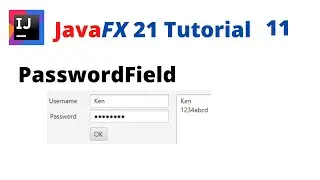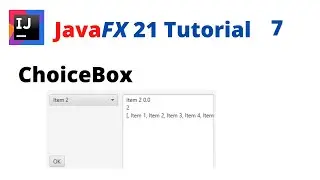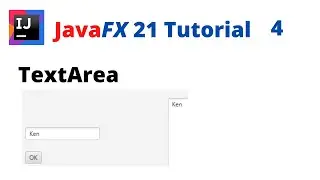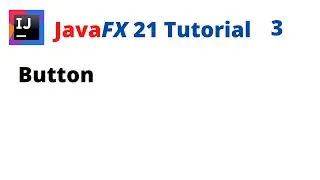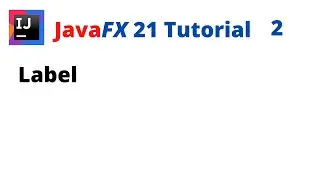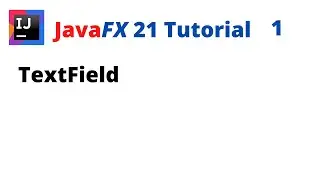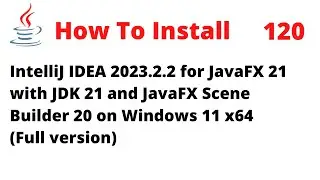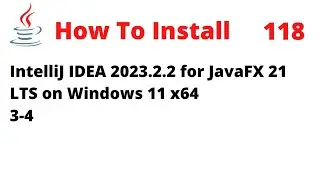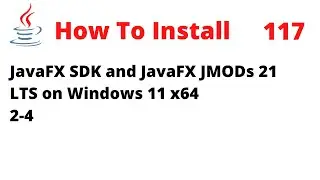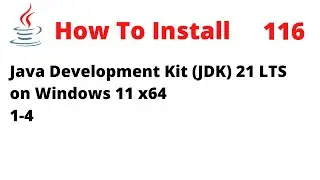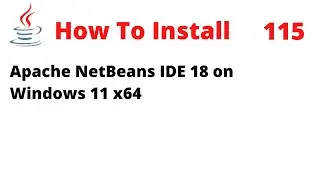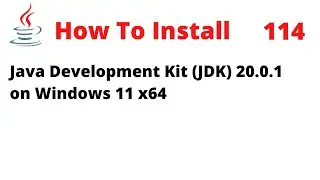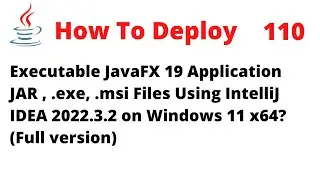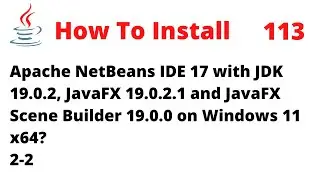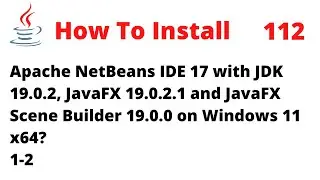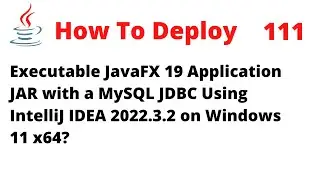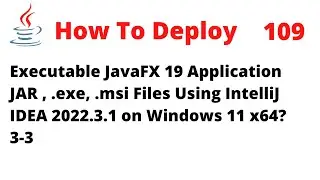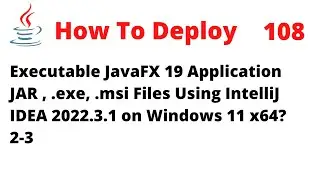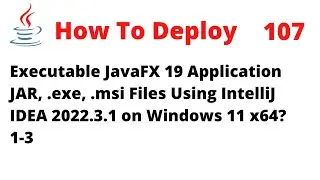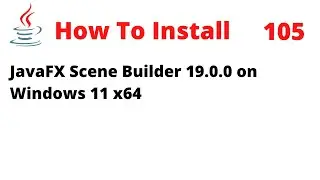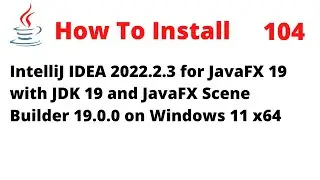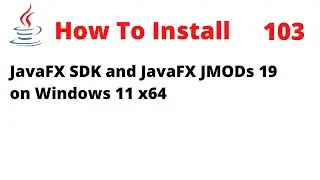How To Deploy an Executable JavaFX 19 JAR, exe, msi Using IntelliJ 2022.3.1 on Windows 11 x64 (3-3)
This tutorial explains how to create a self-contained JavaFX 19 application using JPackage, including all required dependencies. The tool allows you to produce a native package in .exe or .msi format on Windows 11 x64.
The JPackage tool has several options that allow you to customize the packaged application, such as:
--type
The type of package to create
--input
Path of the input directory that contains the files to be packaged
--dest
Path where generated output file is placed
--main-jar
The main JAR of the application containing the main class
--main-class
Qualified name of the application main class to execute.
--module-path
The path to modular jars
--add-modules
Add list of modules
--win-shortcut
Creates a desktop shortcut for the application.
--win-menu
Adds the application to the system menu.
Source:
https://docs.oracle.com/en/java/javas...
You must download and install the following software:
JDK 19.0.2 from https://www.oracle.com/java/technolog...
Open JavaFX (OpenJFX) and JMODS 19.0.2 from https://gluonhq.com/products/javafx/
Java Scene Builder 19.0.0 from https://gluonhq.com/products/scene-bu...
IntelliJ IDEA Community Edition 2022.3.1 from https://www.jetbrains.com/idea/download/
WiX Toolset v3.11.2 from https://wixtoolset.org/releases/
The installed directories are:
C:\Program Files\Java\jdk-19
C:\Program Files\Java\javafx-sdk-19.0.2.1
C:\Program Files\Java\javafx-jmods-19.0.2.1
C:\Users\Ken\AppData\Local\SceneBuilder
C:\Program Files\JetBrains\IntelliJ IDEA Community Edition 2022.2.3
C:\Program Files (x86)\WiX Toolset v3.11
JPackage command
jpackage --type exe --input . --dest . --main-jar JavaFXHelloWorld.jar --main-class com.example.javafxhelloworld.App --module-path "C:\Program Files\Java\javafx-jmods-19.0.2.1" --add-modules javafx.controls,javafx.fxml --win-shortcut --win-menu
jpackage --type msi --app-version "2.0" --input . --dest . --main-jar JavaFXHelloWorld.jar --main-class com.example.javafxhelloworld.App --module-path "C:\Program Files\Java\javafx-jmods-19.0.2.1" --add-modules javafx.controls,javafx.fxml --win-shortcut --win-menu
jpackage --type exe --input . --dest . --main-jar JavaFXHelloWorld.jar --main-class com.example.javafxhelloworld.App --module-path "C:\Program Files\Java\javafx-jmods-19.0.2.11" --add-modules javafx.controls,javafx.fxml --win-shortcut --win-menu --icon "icon.ico" --name "My App" --app-version "2.0"
jpackage --type exe --input . --dest . --main-jar JavaFXHelloWorld.jar --main-class com.example.javafxhelloworld.App --module-path "C:\Program Files\Java\javafx-jmods-19.0.2.1" --add-modules javafx.controls,javafx.fxml --win-shortcut --win-menu --icon "icon.ico" --name "My App" --app-version "2.0" --description "JavaFX 17 Hello World App" --verbose
Note: How To Deploy JAR, exe and msi for JavaFX 17 Application on Windows 11 x64 (Updated) • How To Deploy JAR, exe and msi for Ja...








